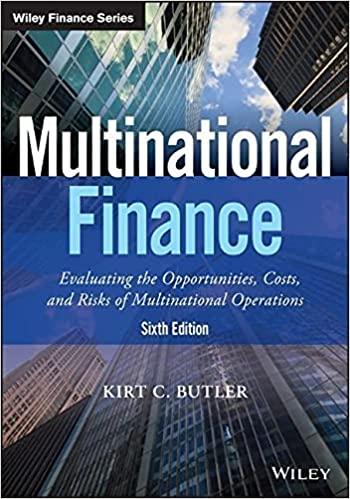Answered step by step
Verified Expert Solution
Question
1 Approved Answer
For this question, refer to the first tab, Price History, which lists a fictitious set of prices for Jan 21 oil futures during the month
- For this question, refer to the first tab, Price History, which lists a fictitious set of prices for Jan 21 oil futures during the month of September. Recall that oil futures quotes are the per-barrel price, and one futures contract is to buy or sell 1,000 barrels of oil. The initial margin for a contract initiated on 9/1 is $6,000. The maintenance margin is 7.5% of current exposure. On a margin call, you must bring your account back to the higher of your initial or your maintenance margin. On September 25, you need to sell 100,000 barrels of oil. You decide to hedge this risk by taking a futures position that you will close out after settlement on 9/25. Assume that on 9/25 you can sell the oil for the spot settlement price that day.
- In order to hedge your oil exposure, should you take a long or short futures position?
- Suppose you order 100 futures contracts of the type specified in part (a). Assume that you purchase them after close on 9/1 at the settlement price and close them out after settlement on 9/25. Make a list of the date and amount of all margin calls that occur over the month. Assume that you can make all of the margin calls.
- On the first day of the contract, you can calculate a threshold price, where if the futures price passes that threshold a margin call will be required. What is that price? [This is trickier than you might think at first]
- Assuming you can make all of your margin calls, what is the total profit or loss made from the futures contracts? [This is easier than you might think]
- Suppose instead that after the payment of the initial margin, you did not have the liquidity to make margin calls. Instead, the clearinghouse closes out the minimum number of contracts required to keep your account active. How many contracts would you have at the end of the month? [This is probably the hardest part]
- Based on the situation outlined in part (e), what is the profit or loss from the futures strategy?
- The firm could have avoided losing the contracts by setting aside money for margin calls at initiation. What is the minimum amount that would need to have been set aside, given this set of price movements, and what would be the de facto leverage of such a strategy? [By de facto leverage, I mean: If the oil futures price were to change by 1%, by what percent would your investment change, using the amount calculated in part ( as your initial outlay]
- What is the minimum amount that would need to be set aside to guarantee the ability to make margin calls for any set of price movements

Step by Step Solution
There are 3 Steps involved in it
Step: 1

Get Instant Access to Expert-Tailored Solutions
See step-by-step solutions with expert insights and AI powered tools for academic success
Step: 2

Step: 3

Ace Your Homework with AI
Get the answers you need in no time with our AI-driven, step-by-step assistance
Get Started


